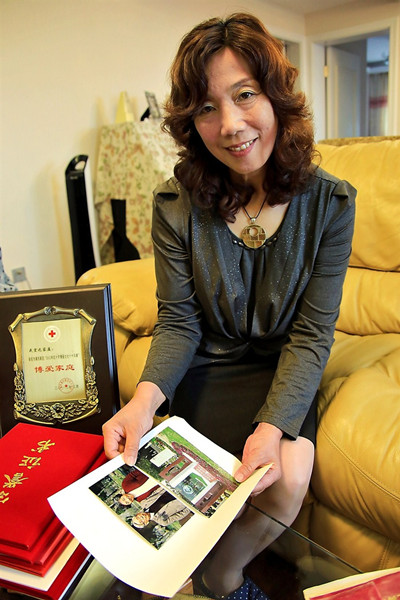

Rong Hongzhi shows some old family photographs. She is the 13th member of her family to become a body donor. Five of those donors have already died. — Zhang Suoqing
Rong Hongzhi, 58, her parents, siblings and in-laws have bucked Chinese tradition in favor of a family tradition. They all donated their bodies to the Red Cross for use in organ transplants and medical research.
In China, a nation where ancestor worship still persists, body bequests are quite rare. They fly in the face of the ancient Chinese belief that a person's soul won't be reincarnated unless the body is buried whole — or in more modern times, cremated whole.
Hongzhi is the 13th member of her family to become a body donor. Five of those donors have already died.
"We are not believers of reincarnation," she told Shanghai Daily. "My mother told me that the dead become nothing more than a box of bone ash after they die, so why shouldn't we give our bodies to help more people live?"
Hers is a sentiment not widely shared.
Last year, only 1,666 Shanghai residents registered as body donors, while 725 people registered to donate their corneas.
In China, 300,000 patients need organ transplants every year, but only 10,000 are lucky enough to get them. About 20 percent of organs transplanted in 2013 were from close relatives, while more than 50 percent came from voluntary donations, according to Huang Jiefu, chairman of the China Organ Donation Committee.
Only about one person in every 2 million in China donated an organ last year. However, that ratio has doubled since 2010, according to Huang.
"It is good to see more Chinese people nowadays are abandoning their traditional beliefs and registering as voluntary organ donors, but there is still a long, long way to go," said Tang Zhaoxiang, associate director of the Organ Donation Office of the Shanghai Red Cross.
Tang said young, educated women are among the most active donors in China.
Rong Hongzhi certainly fits the bill. She comes from a medical family. Her grandfather and parents were doctors or medical researchers.
She is especially proud of her grandfather, Rong Zhaomin, who was born in 1887. He studied advanced medicine in Japan and came home to devote his life to helping the poor. He first set up a private clinic in Beijing and later became a doctor in Shanghai.
"He had miracle skills," Rong said. "I remember when my brother's finger was once badly broken and Grandpa did the bone-setting immediately at home. My mom said he treated many figures of his era, including Premier Zhou Enlai and famous actresses Bai Yang and Zhang Ruifang. Most of them were introduced by his friend Guo Moruo, a well-known Chinese author and government official who met Grandpa when they were studying in Japan.
Copyright ©1999-2018
Chinanews.com. All rights reserved.
Reproduction in whole or in part without permission is prohibited.